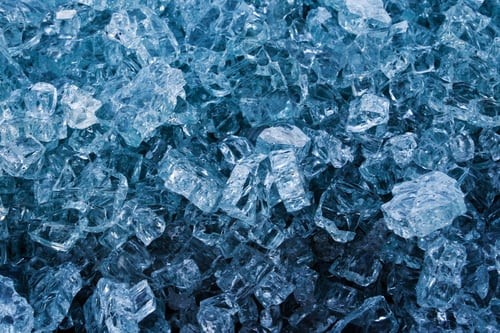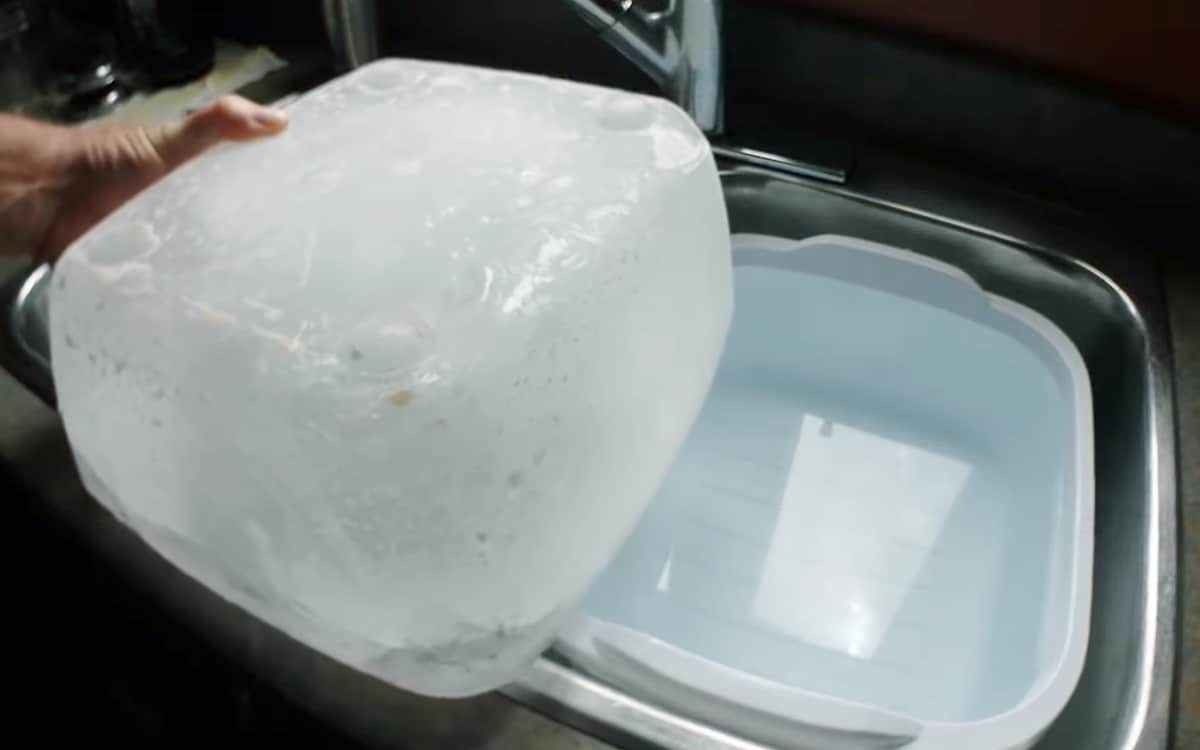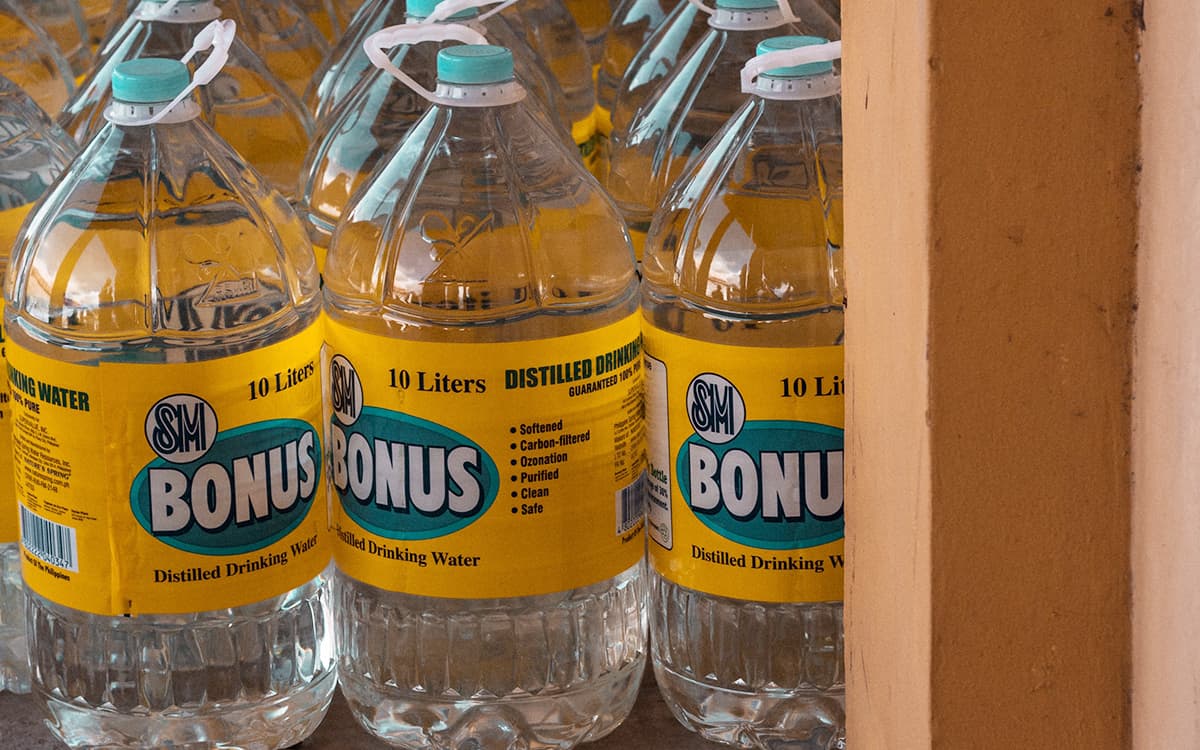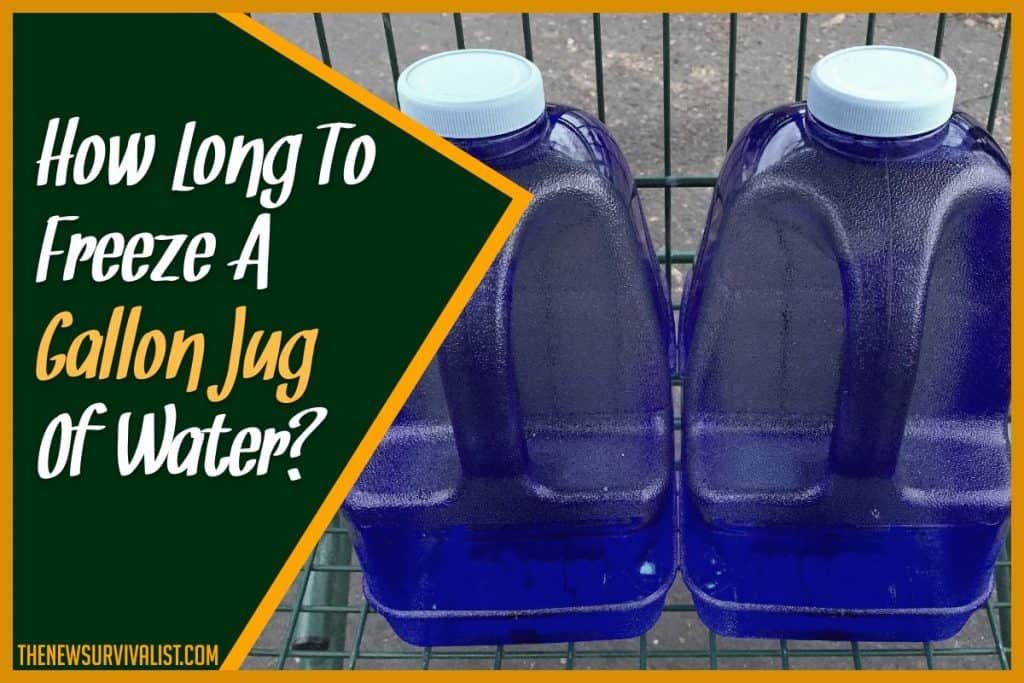Freezing water in gallons is an easy way to make ice blocks for your ice chest. You can use the ice blocks for days in order to preserve your food and to keep your drinks cool.
How long to freeze a gallon jug of water? The freezing point of water is 32 degrees Fahrenheit. It takes about three to four hours for the water to freeze into ice. This timeframe is still affected by factors like:
- Temperature
- The volume of the water
- Freezer output
- Type Of Container
Before you freeze gallons of water for long-term storage, it’s important to prepare your food-grade containers by making sure they’re sanitary. It’s also beneficial to know how much water you should prepare for emergency situations.
How Long To Freeze A Gallon Jug Of Water? (Factors)
There are four different factors that will affect the rate at which your gallon of water freezes. These factors can be mitigated so that you can freeze water at a faster rate.
Initial Temperature

This refers to the temperature of the water before you place the gallon in the freezer. Hot water will take longer to freeze than cold or room temperature water. That’s because the temperature still has to go down to cool the water before it starts freezing. Warm water means that the molecules are still very active. They need to slow down to latch to each other, which leads to the solidification of water.
Volume Of The Water
This pertains to the amount of water you intend to freeze. This is most likely influenced by the size of the water container. An average gallon will freeze within four hours. A smaller bottle can freeze within an hour or two. A larger container than a gallon will take even more time to freeze.
Freezer Output
The freezer output refers to the temperature setting of your freezer. A freezer temperature of 25 degrees Fahrenheit will freeze your water faster than at 32 degrees Fahrenheit.
The contents of your freezer may also affect the rate at which water freezes. If the freezer already contains frozen items, the water will freeze more quickly.
Type Of Container
The material of the water gallon will likewise affect the speed of freezing. Metal containers like stainless-steel jugs will cause the water to freeze faster compared to plastic gallons. That’s because metal containers are better at conducting energy compared to plastic. The only downside is that metal containers are more expensive, heavier, and bulkier to carry. As such, it’s advisable to use plastic gallons since they’re easier to source and are significantly cheaper.
How To Freeze Water In Gallons

This is also known as creating ice blocks for camping. It’s better to use ice blocks for your ice chests because they last longer than ice cubes. The bigger chunk of ice is harder to melt and guaranteed to last for days. This is also cheaper than buying ice blocks from stores.
Gather The Gallons
As aforementioned, it’s recommended to use plastic gallons. You can purchase brand-new ones from hardware stores or reuse gallons from drink containers, like milk or juice. When purchasing gallons, make sure to select the ones that are made from food-grade, UV-resistant, and BPA-free plastic. It’s ideal to use polyethylene-based plastics, specifically plastics number 1, 2, and 4.
Most commercial water barrels are color blue. This color limits light exposure so as to hamper microbial growth.
Before you recycle milk gallons, make sure to clean them thoroughly first. Keep in mind that milk jugs can’t be used sustainably because they are biodegradable and will eventually break down. Clean the milk jug by lightly scrubbing all surfaces to get rid of any traces of milk which might cause microbial growth.
Prepare The Water
For ice blocks, any freshwater will do. Boil the potable water to kill off any microorganisms. There’s no need to treat the water with chlorine if you wish to keep it potable. Chlorine can also cause erosion on the water gallons.
Carefully pour the water into the gallons. Don’t fill it to the brim and leave a few inches of space. This is important because water expands once frozen. If you fill the gallons to the brim, there’s a chance that the gallons will crack.
Freeze The Gallons
Pop the gallons into your freezer. Place them at the bottom so that they won’t interfere with other frozen goods. Placing them on top can also mush your food. Once frozen, you can transfer the ice blocks to your ice chest so that you’ll still have a makeshift refrigerator even when the power is out.
How Much Water Do You Need?

The first step is to determine how much water you should get. The average individual should have four gallons of stored water per day. Half is for drinking while the other half is for sanitary purposes. FEMA recommends stockpiling this amount of water for every family member for three days to two weeks.
Proper Water Storage
Gather all of your water reserves. Store them in a cool, dark, and dry location. Limit their exposure to sunlight and temperature fluctuations. It’s ideal to use gallons in the shade of blue or dark blue because this color blocks out light and limits algal growth. Before you decide to stack your containers on top of each other, check first if the gallons are even stackable in the first place. Moreover, routinely check if your containers are leaking.
Label the storage date and make sure to rotate your stock frequently. Stored water must be replaced every three to six months.

